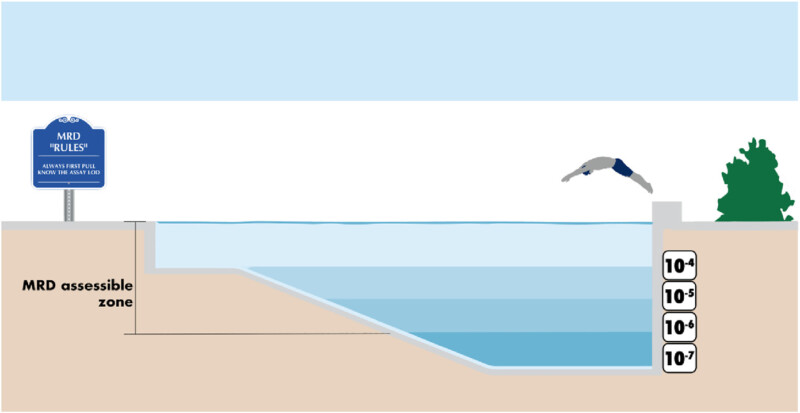Introduction
Measurable residual disease (MRD) is one of the most important prognostic factors for progression-free and overall survival in multiple myeloma With the recent 2024 FDA ODAC decision to accept MRD as an endpoint for clinical trials in MM, there is an increasing desire to find even more sensitive and less invasive ways to monitor MM. Recent advancements in peripheral blood testing can have a profound impact on the way physicians and patients are be able to dynamically monitor disease and measure the depth of response to treatment.
Publication Summary
In this review article, Dr. Ben Derman and Dr. Rafa Fonseca explore the evidence surrounding the potential benefits and drawbacks of MRD-adapted clinical decision-making in MM as well as provide a comprehensive overview of the latest MRD testing methodologies – including the EasyM clonotypic peptides mass spectrometry MRD blood test.
Key Takeaways:
- There are several ways to assess MRD in MM; bone marrow methods such as next-generation sequencing and next-generation flow cytometry can achieve sensitivity up to 10⁻⁶.
- Each increase in MRD sensitivity threshold is associated with improved prognostication, and sustained MRD negativity carries greater significance than a single instance of MRD negativity.
- There is mounting evidence that MRD-guided de-escalation of therapy is feasible and may not compromise clinical outcomes.
- Peripheral blood techniques to assess for MRD are quickly moving from research to clinical use and hold promise as complementary tools to bone marrow MRD assays.
Authors
Derman B, Fonseca R. Measurable Residual Disease and Decision-Making in Multiple Myeloma. Hematol Oncol Clin North Am. 2024 Apr;38(2):477-495. doi: 10.1016/j.hoc.2023.12.009. Epub 2024 Jan 6.
.
Contact Us.
We want to make an impact on myeloma.
We welcome discussion with academic investigators, pharmaceutical companies, patient groups and related service providers. Please reach out.
Talk to Our Scientists.
We Have Sequenced 5000+ Antibodies and We Are Eager to Help You.
Through next generation protein sequencing, Rapid Novor enables timely and reliable discovery and development of novel reagents, diagnostics, and therapeutics. Thanks to our Next Generation Protein Sequencing and antibody discovery services, researchers have furthered thousands of projects, patented antibody therapeutics, and ran the first recombinant polyclonal antibody diagnostics




